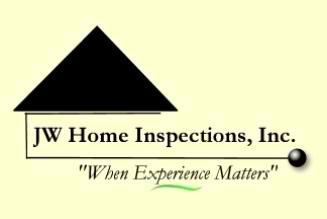Oil in Your Backyard?
Calm down Jethro, you are not going to get rich.
If you have oil in your backyard around these parts (Hilton
Head, Okatie, Sun City and Bluffton, SC), it may be in an underground tank if
you have an older home or property. Historically,
above ground tanks and below ground
tanks have been used for storing heating oil for homes (and businesses). While
heating oil in storage tanks is seldom (if at all) to be seen in our locale, occasionally as a
home inspector, I find evidence of a buried fuel oil tank. Such an incident
recently occurred during a home inspection in one of the older plantations
on Hilton Head Island.
 |
| Removal of buried heating oil tank |
The home inspection was going along quite well for an older
home, and thankfully I was not observing a lot of defects to write in the Home
Inspection Report. Towards the end of the inspection, I was outside walking the
property to check the exterior inspection items, when I nearly tripped over two
rusted metal pipes protruding from the ground (about one foot above ground. One
pipe had a cap on it and the other pipe was open at the end (likely a fill pipe
and a vent pipe for an underground home heating oil tank). I opened the fill
pipe and noticed liquid in the bottom of the tank. That is when I decided to light a match for a
better look. Of course I did not do this, or this story would not be
entertaining you (it is, isn’t it?).
 |
| Fill pipe and vent pipe |
On a more serious note, if such tanks are leaking (or have
leaked), there could be considerable environmental damage done to surrounding
areas. One particular concern would be if residents at this home or nearby
homes were using groundwater wells.
Petroleum contaminated water that is ingested or used for bathing has
the potential to be deadly. The tanks are capable of leaking chemicals for a period
of many years, considering that the corrosive process is usually slow.
The Groundwater Protection Council has at one time indicated
there are 640,000 in ground Federally regulated tanks storing fuel and
hazardous products, and 465,000 of these have leaked, with most requiring cleanup.
A large percentage of these could not be cleaned / removed due to not being
able to locate the responsible party.
Liability for leaking tanks with petroleum products can be
quite large for a property owner. Testing is usually around $500.00, however the
cost to clean up and remedy damages could be significantly more. If you are purchasing an older property, make
certain your inspector is watching out for buried tanks in the ground that may
contain petroleum based products. If such a tank is found, make certain it has
been properly inspected and tested, and removed or drained and filled, as
necessary. Testing can involve one or more of the following:
- Pressure testing: pressurized tanks are monitored for a period of time to observe any fluctuations in pressure that would indicate a leak.
- Soil testing: soil samples are taken around the tank and sent to a lab for analysis.
- Other methods: Ultrasound and ground penetrating radar may also be used.
Above ground tanks can also present similar problems from
leaking and also need evaluated.
Again, I stress the point that if you are buying an older
home, make certain your Home Inspector is aware that there could be buried
tanks on the properly and to look for them.
Thanks for reading my Blog.
John M. Wickline, President


